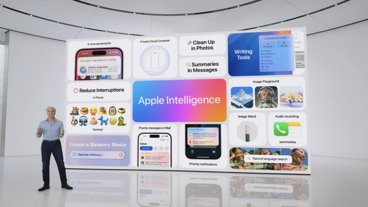According to a report by Gigaom, the codeveloped SIM would be integrated into future iPhones to enable users to activate service without having to call or visit a mobile carrier after purchasing their phone.
Instead, users will be able to shop for service from competing carriers right as they purchase their phone. Currently, users must set up a contract with and obtain a special, carrier-specific (and carrier-locked) SIM card from a given provider after they purchase their iPhone.
The new Gemalto SIM, the report notes, "is embedded in a chip that has an upgradeable flash component and a ROM area. The ROM area contains data provided by Gemalto with everything related to IT and network security, except for the carrier-related information. The flash component will receive the carrier related data via a local connection which could be the PC or a dedicated device, so it can be activated on the network. Gemalto will provide the back-end infrastructure that allows service and number provisioning on the carrier network."
In addition to saving iPhone customers the step of having to visit a mobile provider to obtain a carrier-specific SIM, a programable SIM could also enable users to roam across regions and obtain service without requiring a unique SIM for each different location.
Open SIM, contactless transactions
While observers have hailed the concept as a way for Apple to open up the market for phone service to increased competition, a larger aspect of the reported Gemalto-Apple partnership is likely to involve NFC (near field communications), a technology that enables users to authenticate themselves with electronic terminals in order to make retail purchases, obtain tickets, and perform other transactions using RFID (radio frequency identification).
Gemalto already operates as a Trusted Server Manager to facilitate secure, contactless purchases using NFC technology. Additionally, Apple has already filed patents and hired a product manager, and has reportedly started testing prototypes of iPhones using NFC features.
Working with an established NFC expert to deliver a SIM-based way to make contactless transactions from iPhones could quickly establish Apple as a major player in handling secure authentication for convenient retail transactions. Tied into iAd, such a position would enable Apple to woo advertisers with the prospect of immediately translating marketing opportunities in to sales.
 Daniel Eran Dilger
Daniel Eran Dilger






-m.jpg)






 Andrew Orr
Andrew Orr
 Malcolm Owen
Malcolm Owen
 William Gallagher
William Gallagher

 Wesley Hilliard
Wesley Hilliard






-m.jpg)




34 Comments
Steve Jobs next target is to replace your wallet.
That and to create your next virtual business office server in the new cloud. Oh, and your hard drive too.
But the wallet is next in the consumer line. And wait til he figures out how to eliminate your keys.
I can see Apple building this in... supporting all GSM carriers and CDMA to boot, then sell it to the world. Boom. One true world phone. The good thing about a permanent SIM is a thief may not be able to use the phone... making them less of a target.
Steve Jobs next target is to replace your wallet.
That and to create your next virtual business office server in the new cloud. Oh, and your hard drive too.
But the wallet is next in the consumer line. And wait til he figures out how to eliminate your keys.
Yeah, but there will be enough Luddites and other scared people to delay this implementation at least another five to ten years.
Did I read this correctly....Apple is going to have chips in the iPhone so you can shop for the cheapest cell service, month to month?
Or is just a way to spend money using your iPhone instead of a credit/debit card?
Oh well...I would like cell phone coverage to be "commoditized."
I'm paying $120/mo...way too much! I think I will switch to a dumb phone and an Wifi iPad!
Steve Jobs next target is to replace your wallet.
That and to create your next virtual business office server in the new cloud. Oh, and your hard drive too.
But the wallet is next in the consumer line. And wait til he figures out how to eliminate your keys.
The wallet has already been done. The Japanese call it "osaifu keitai" (literally "wallet phone"). They wave their phones over sensors as transit passes, buying event tickets, boarding passes, paying for groceries, as loyalty ("club") cards, etc. They've been doing it for about five years.
You could use the same NFC contactless system as a key, however the locks are generally too expensive except in commercial/industrial applications. Companies have been using key cards for decades.
The first practical application as an electronic key from a consumer standpoint would probably be your car. Quite a few luxury autos now have keyless wireless fobs.